Field investigation teams with Rainforest Action Network have documented alarming evidence of fresh forest clearance this past May, 2019 within some of the most important remaining lowland rainforests in Indonesia. Located in the northeast section of the Leuser Ecosystem, the forests being destroyed contain internationally recognized concentrations of biological diversity. In particular, these rich forests are among the most valuable remaining habitat for critically endangered Sumatran elephants, who use the region being deforested as a crucial migration route connecting larger areas of intact forest.
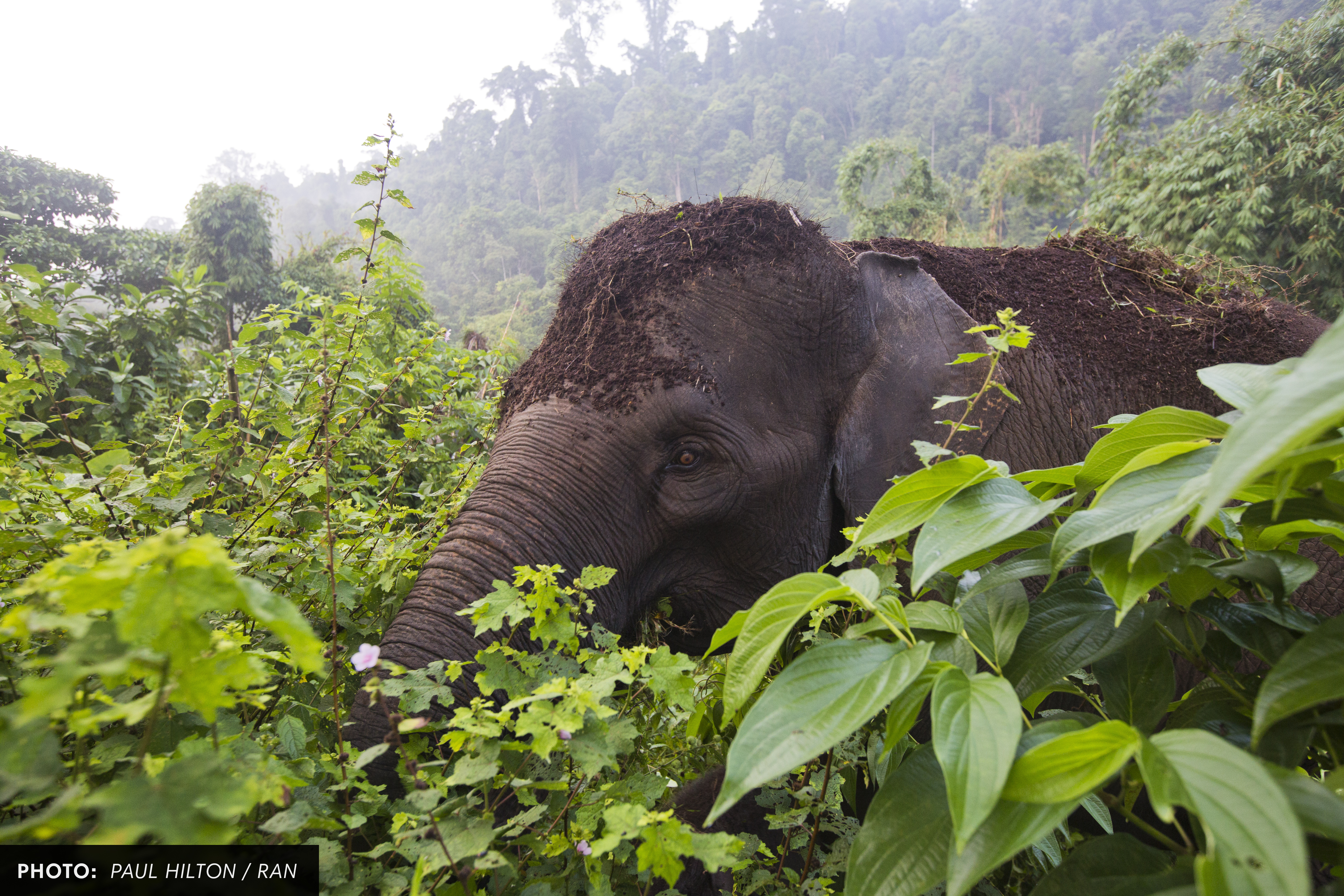
Wildlife experts fear that the regional population of elephants may already be lower than what is necessary to sustain a viable population in the long term, so preventing extinction of these iconic species depends upon stopping further deforestation in a critical stretch of lowland rainforests stretching through Aceh Timur into neighbouring districts in Aceh Utara, Aceh Tamiang and across the border into the Gunung Leuser National Park in North Sumatra.
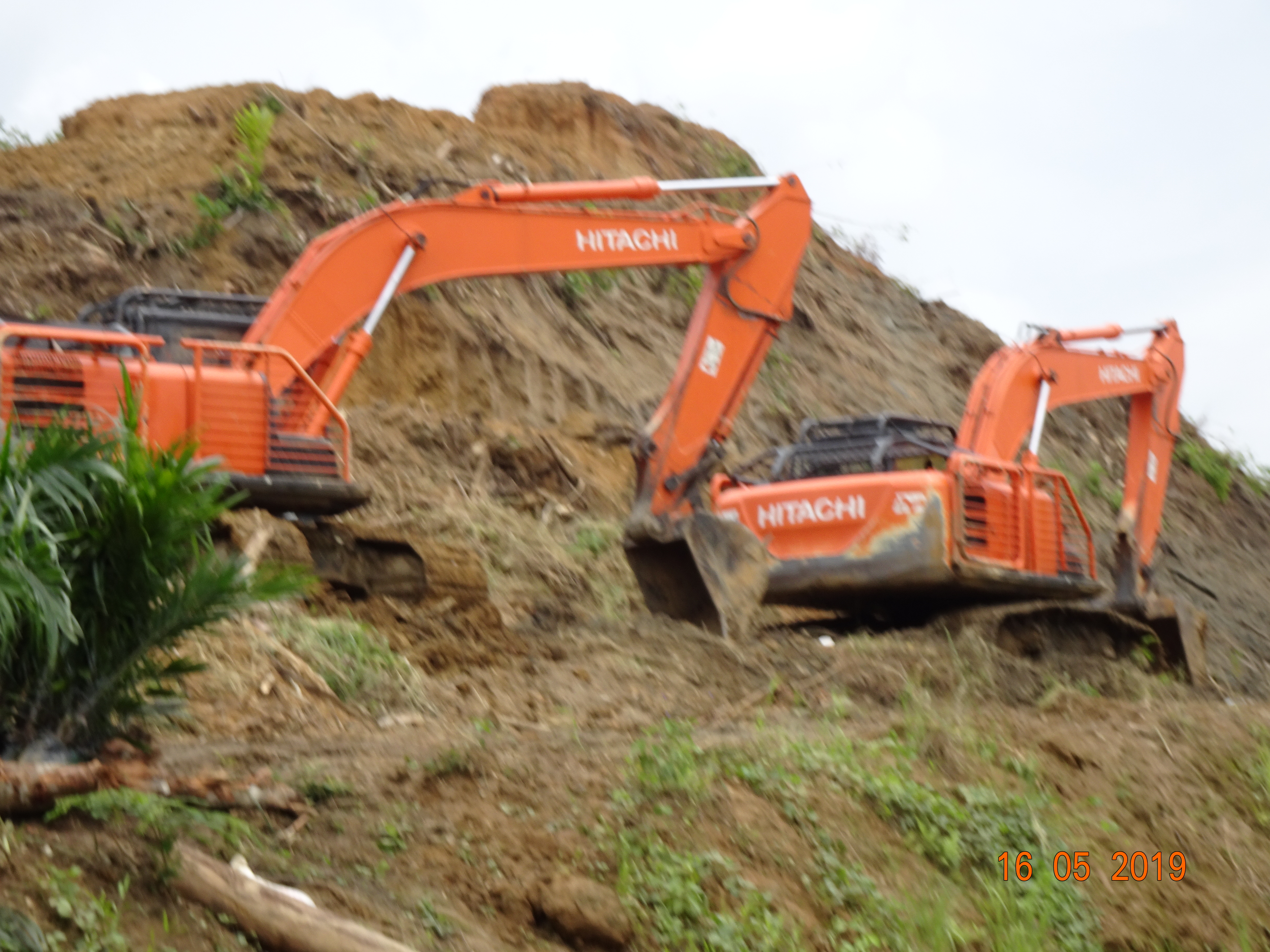
GPS Coordinates: N 04 48 30.5 E 097 30 15.4
The ongoing forest destruction is occurring within lands that were previously allocated to three plantation companies: PT Nia Yulided, PT Indo Alam and PT Tualang Raya. All three companies are owned by Achenese businessmen. PT Nia Yulided, the company exposed for the largest extent of clearance since January 2019, is understood to be owned by Mr. Dedi Sartika, the son-in-law of Mr. Tarmizi A Karim, the former interim Governor of Aceh.
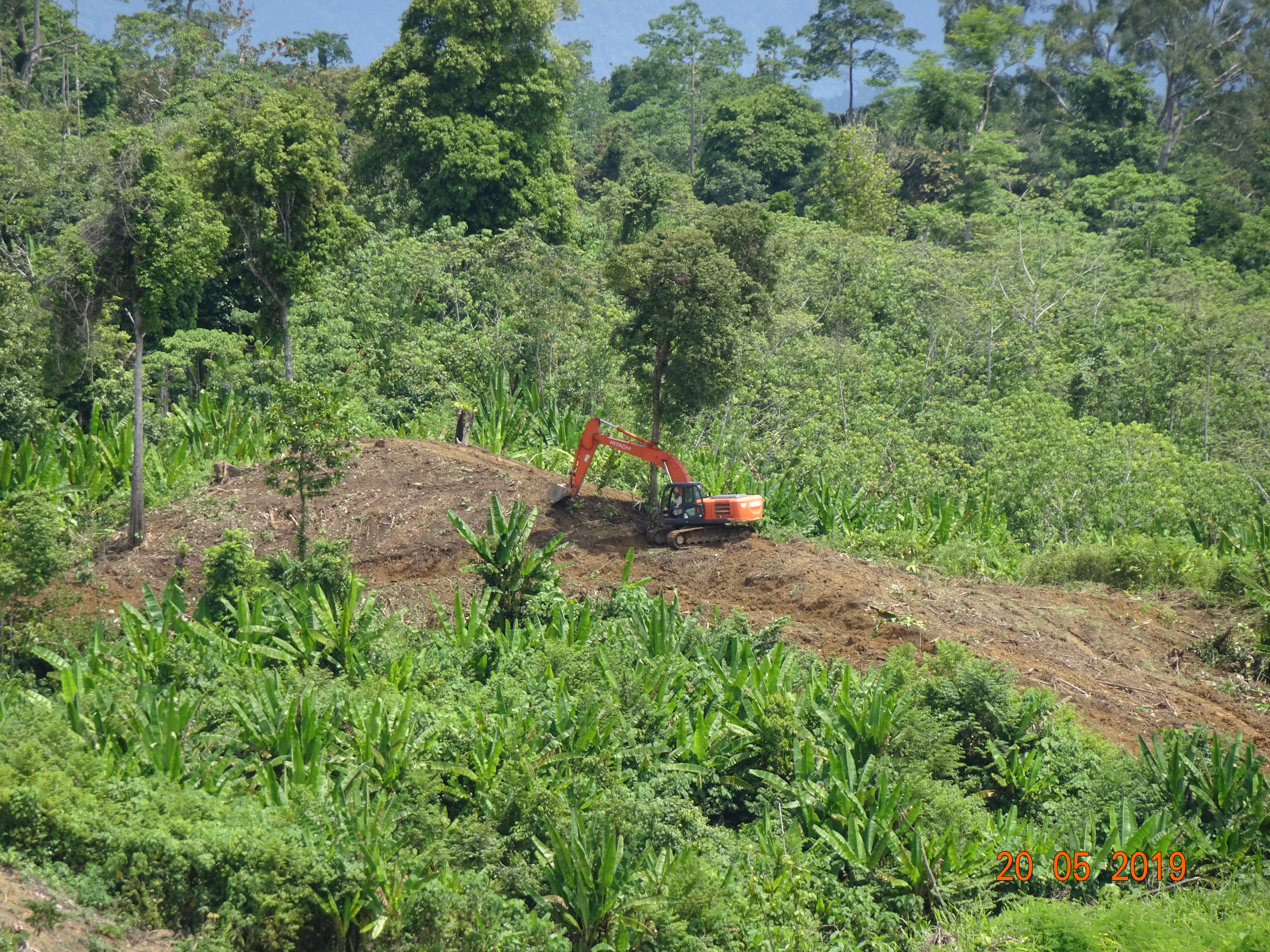
May 20 2019 GPS coordinates: N 4 33 30, 37 E 97, 39 19, 39
While exact numbers are not known, the International Union for the Conservation of Nature (IUCN) estimates only about 700-1000 Sumatran elephants are left in all of Sumatra, while roughly 200 depend for survival on the lowland rainforest area where this new forest clearance has been documented. These remaining animals are increasingly isolated and divided from each other and cut off from their centuries-old migration routes by forest fragmentation and the relentless incursion of palm oil plantations into their shrinking lowland rainforest territories.
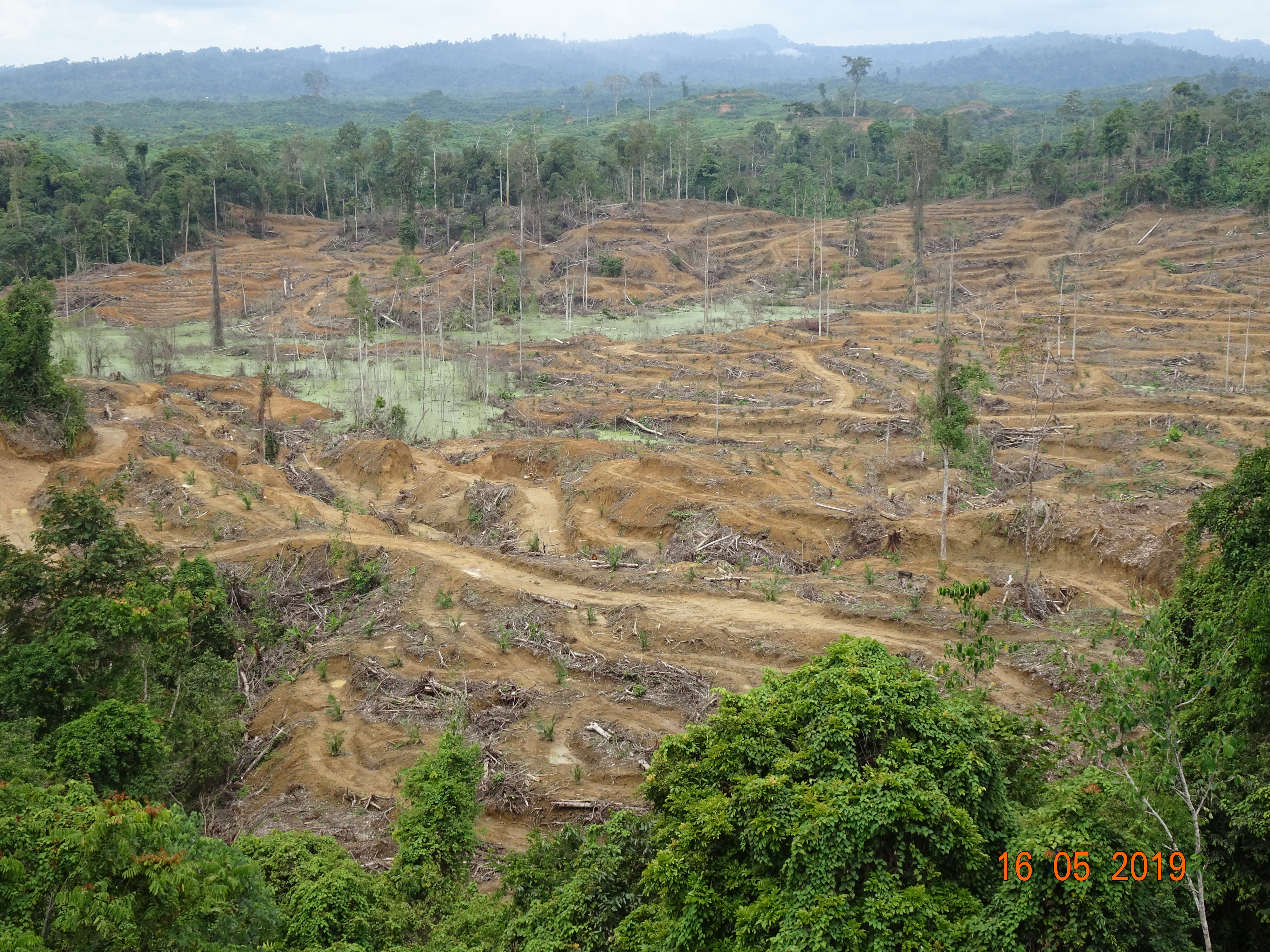
GPS coordinates: N 4 48 17, 50 E 97 29 57, 36
The loss of over 70% of Sumatran elephant habitat since 1985 has led to increasing human-wildlife conflicts which too often result in these majestic animals being slaughtered as pests or caught in traps placed by poachers alongside community gardens or palm oil plantations.
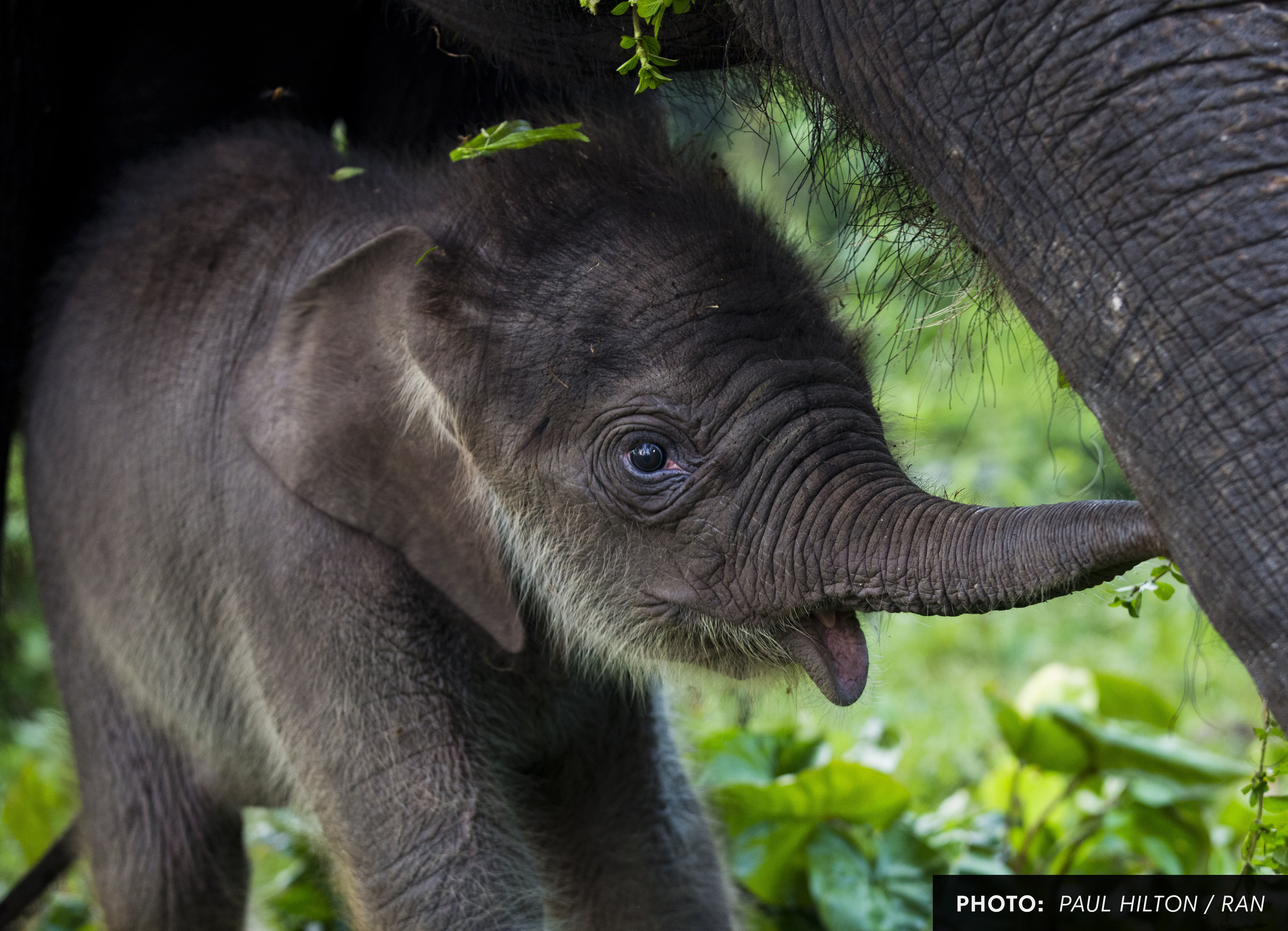
Sumatran elephants face a serious and very real threat of extinction within our lifetimes. If this is to be prevented, it is of the utmost urgency that the global brands using palm oil in their products establish monitoring and enforcement systems to stop deforestation by palm oil suppliers located in the Leuser Ecosystem and demand only verifiable, truly responsible palm oil.
In May 2019, thousands of concerned consumers signed a petition calling on Candymakers Nestlé, Mars, Mondelēz and Hershey’s to use the billions of profits made off candy and chocolate to establish proactive, transparent monitoring systems to identify and halt deforestation in the Leuser Ecosystem. Nestlé established a satellite-based monitoring system but has failed to put its new tool into use to halt new forest loss by these known perpetrators. Mondelēz chose to require its suppliers to map and monitor plantations for deforestation, instead of establishing its own transparent monitoring system. The shocking truth is, despite knowing about this elephant emergency for five years, not a single snack food company has addressed its connection to the destruction of the lowland rainforests of the Leuser Ecosystem. For the sake of the last Sumatran elephants, this needs to change.
Government intervention is also needed to protect and re-connect the habitat for the last herds of Sumatran elephants. The Indonesian government recently announced its commitment to make permanent its moratorium on the clearance of primary forests across Indonesia. This announcement is a positive step demonstrating its commitment to protect important forest areas. There is increasing hope that the provincial and central governments can work together to deliver legal protections for primary forests threatened by conversion inside the Leuser Ecosystem.
In September 2018, a presidential instruction by President Joko Widodo was also enacted to halt forest clearance for palm oil and the issuance of new permits, and to conduct a review of existing palm oil permits. The most recent evidence of land clearance presented above and below shows the urgent need for government interventions to enforce moratoria, revoke the permits of PT Nia Yulided as a sanction for violating the presidential order to stop clearing, and secure commitments from PT Indo Alam and PT Tualang Raya to protect forest areas where their palm oil concessions are known to overlap with critical elephant habitat.
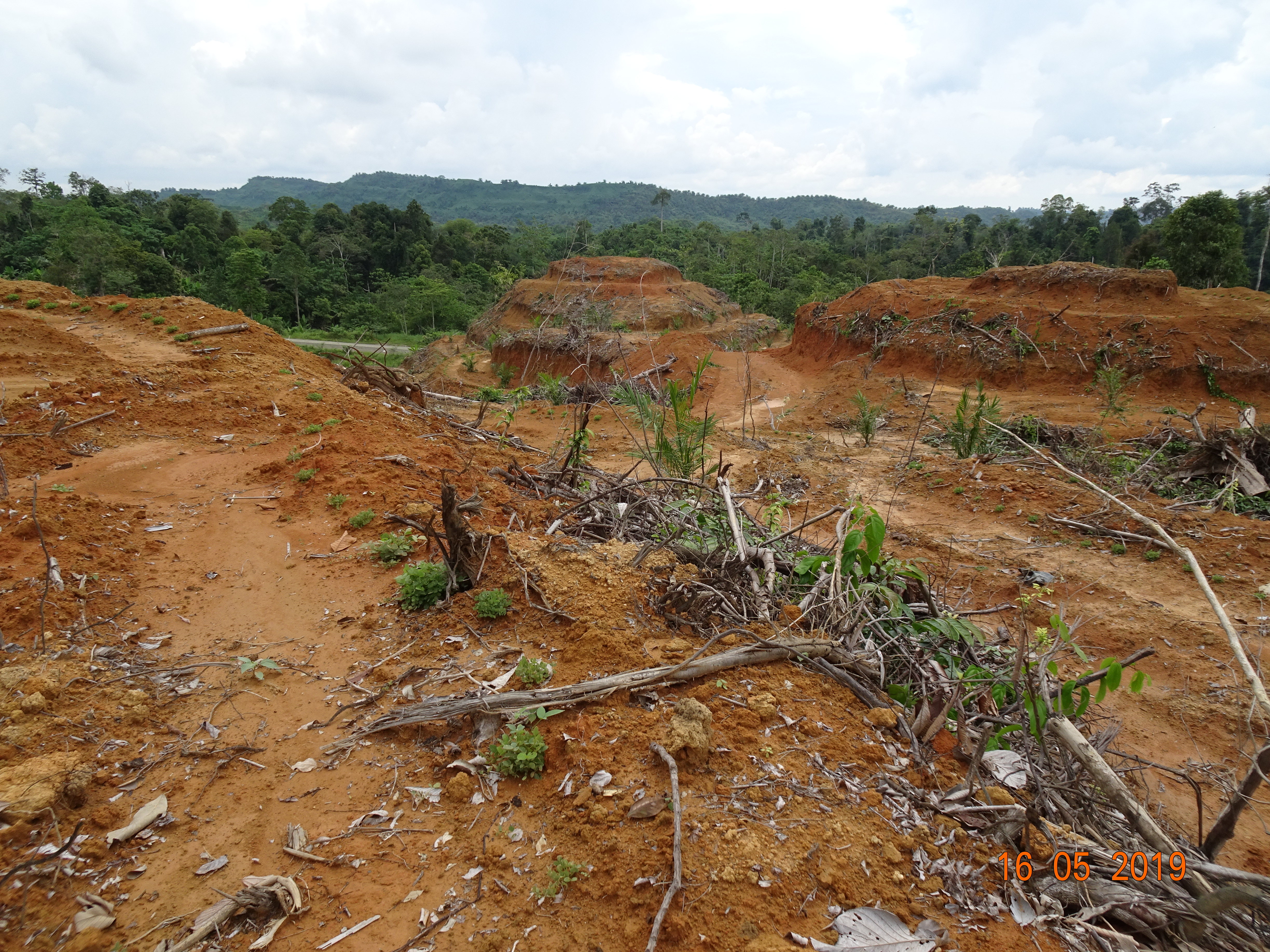
GPS N 04 48 30.5 E 097 30 15.4
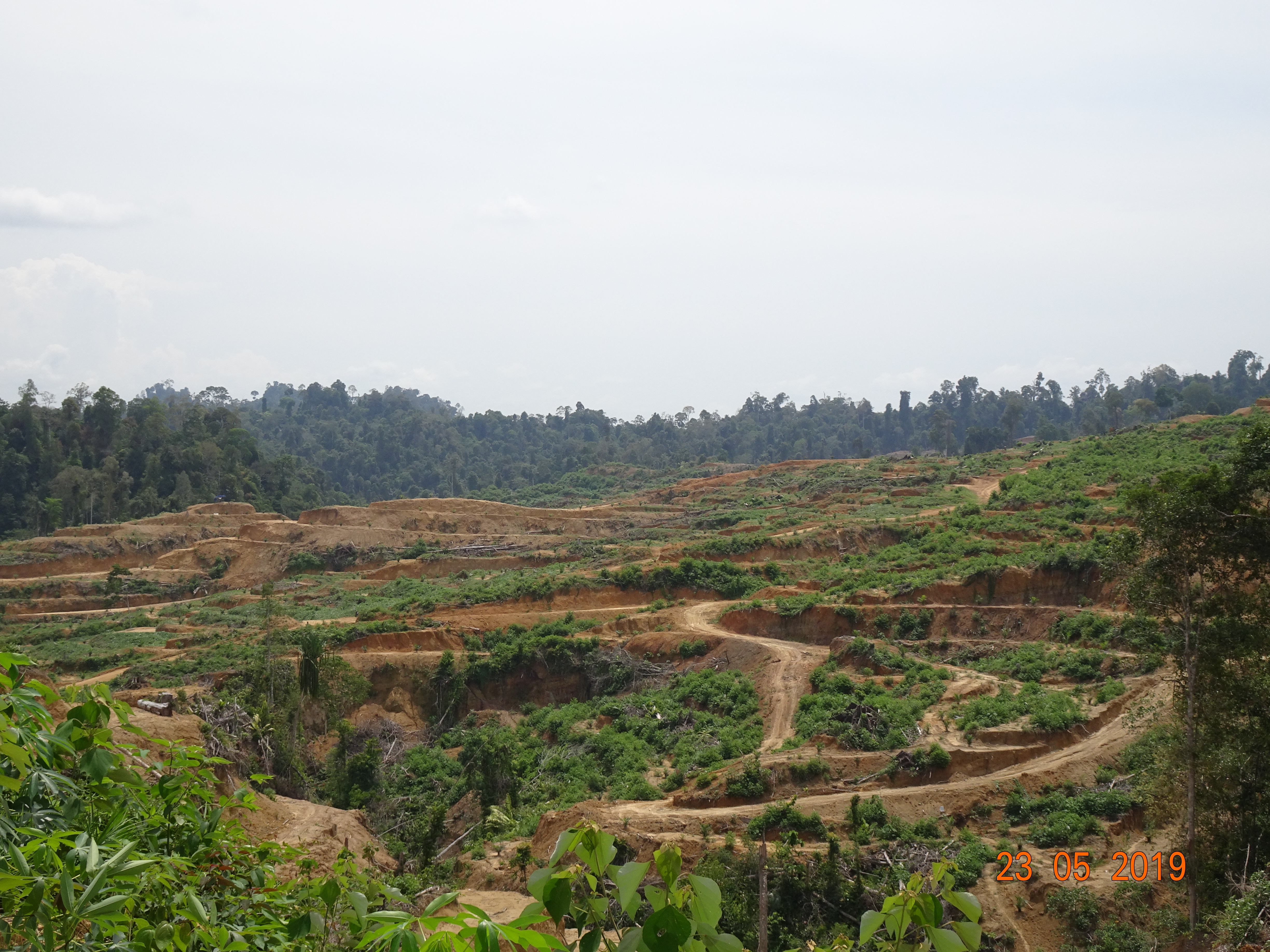
GPS N 04 2 ’40.2 E 097 49 51.6
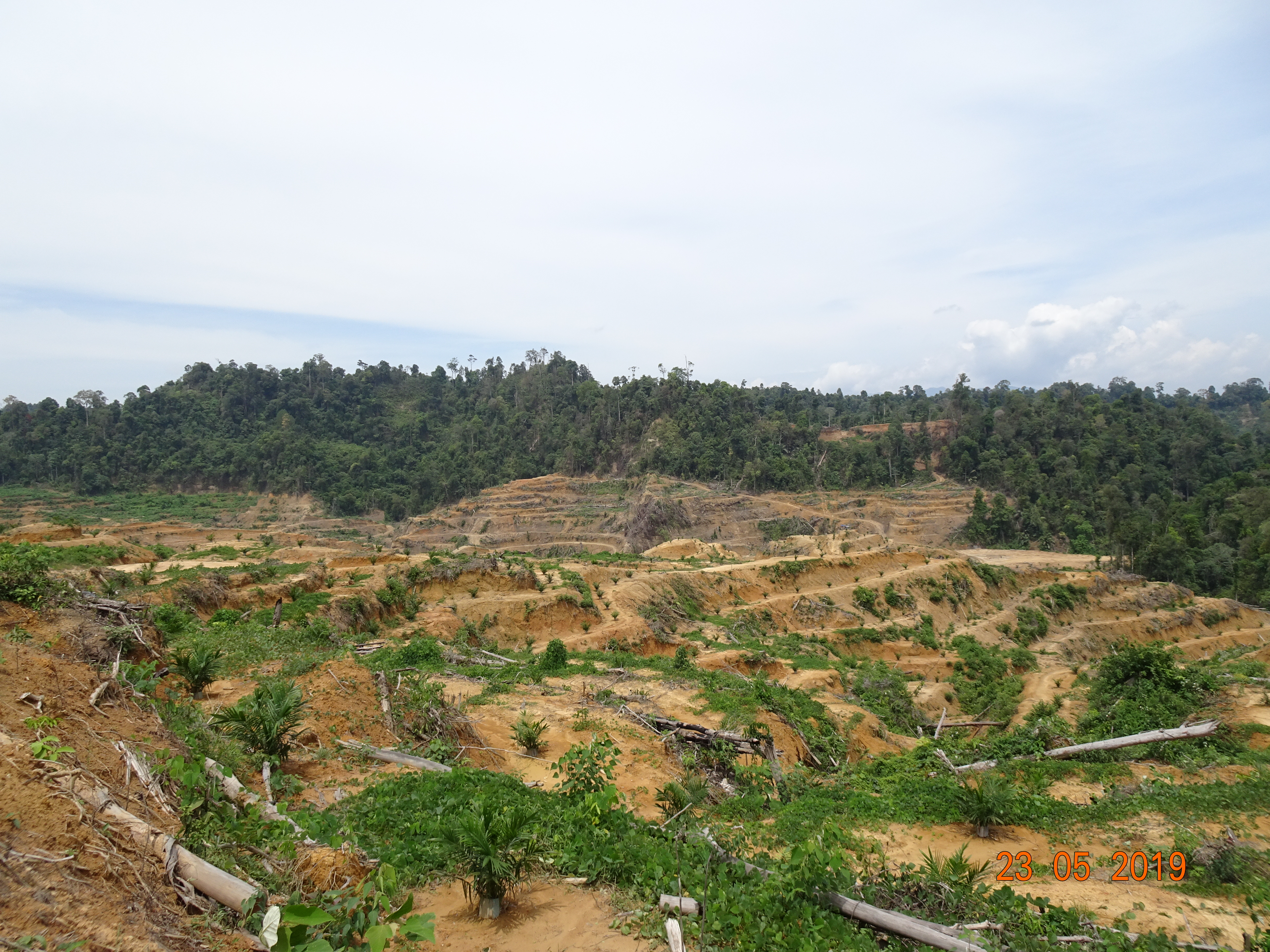
GPS N 04 26 40.2 E 097 49 51.6
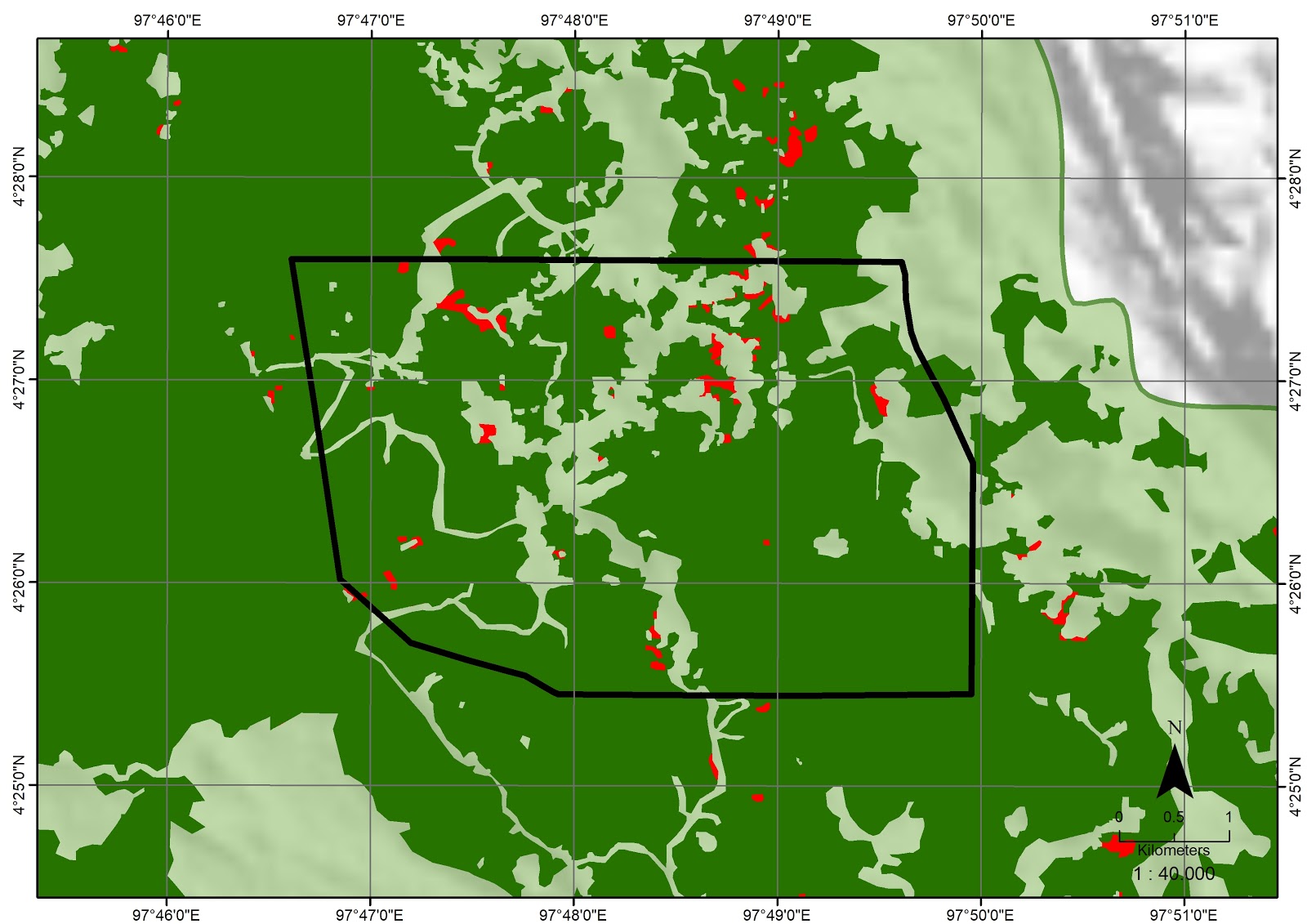
GPS N 04 26 40.2 E 097 49 51.6












